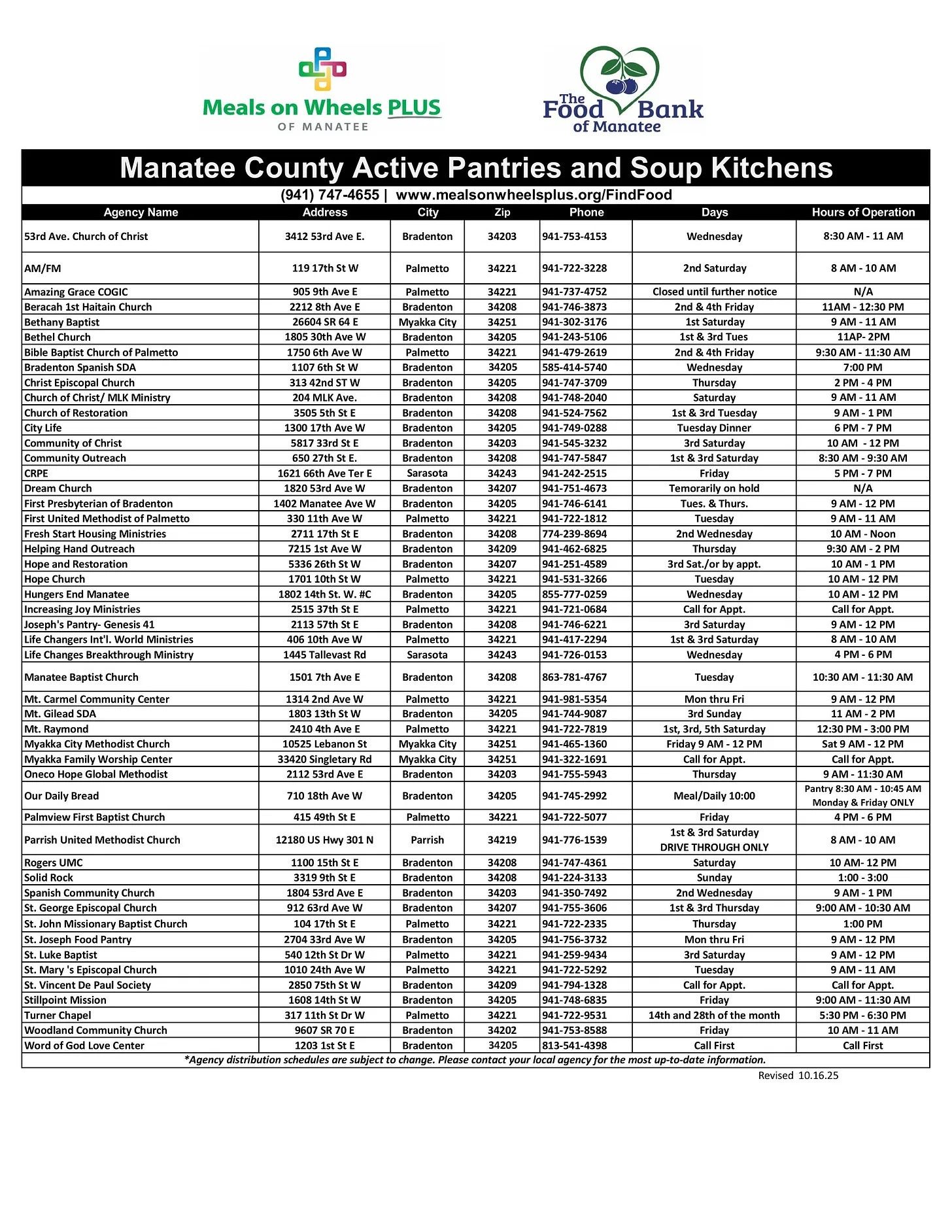Federal Shutdown Halts November SNAP Benefits, Impacting Nearly 3 Million Floridians
Millions of Florida residents who rely on federal food assistance will not receive their November benefits as the ongoing government shutdown continues, according to the U.S. Department of Agriculture (USDA).
The USDA confirmed that no Supplemental Nutrition Assistance Program (SNAP) payments will be distributed on November 1 after the administration opted not to use approximately $5 billion in contingency funds to extend the program. The agency’s notice stated that funding has been exhausted and that no benefits will be issued unless a political resolution is reached soon.
SNAP, which supports one in eight Americans in purchasing groceries, serves about 2.97 million Florida residents—roughly 13 percent of the state’s population. Data from the Center on Budget and Policy Priorities show that 59 percent of SNAP participants in Florida are in families with children, 41 percent include older adults or individuals with disabilities, and 37 percent are in working households.
The shutdown, which began on October 1, has become the second-longest in U.S. history. While efforts were made to fund SNAP benefits through October, the new cutoff will have a broader impact nationwide. The lack of food aid threatens to exacerbate financial instability and food insecurity for millions of households.
In Florida, food insecurity and poverty remain ongoing challenges. Federal data show that in 2023, 12 percent of households were food insecure, 12.3 percent of residents lived below the poverty line, and more than 15 percent of children lived in poverty.
Several states, including Louisiana, Vermont, and Virginia, have pledged to use state resources to continue food aid if the federal program remains stalled. However, officials acknowledge significant logistical and funding challenges.
The issue has sparked political debate in Washington. Lawmakers from both parties have criticized one another over the continued impasse. Rep. Debbie Wasserman Schultz (D-FL) urged federal action to restore funding. At the same time, Sen. Rick Scott (R-FL) blamed Senate leadership for the problem and called for an immediate end to the shutdown.
Without swift intervention, nearly 41.7 million Americans—including 2.9 million Floridians—face the prospect of going without federal food assistance in November, deepening the effects of an already far-reaching government shutdown.



